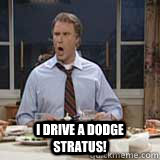Make Your Point > Archived Issues > STOLID
Send Make Your Point issues straight to your inbox.
Someone stolid seems empty-headed or empty-hearted: they don't show excitement, happiness, fear, anger, or anything. They're impassive; unexcitable; st___ (emotionless or reactionless, like a certain kind of Greek philosopher); or phl_____ic (calm, sluggish, and unenthusiastic, as if governed by a certain of the four bodily fluids from a medieval theory of personality).
"Stolid" comes from the Latin stolidus, which meant "dull, slow, stupid, or brutish." We've used it in English since the 1600s to mean both "stupid" and "unemotional," but these days it almost always means "unemotional."
Part of speech:
"Stolid" is a formal, semi-common word, perfect for describing blank, robotic, emotionless people and things.
(Source)
"He propped the rifle... and sighted with stolid concentration: one shot... two... three, and each found its man."
Explain the meaning of "stolid" without saying "apathetic" or "impassive."
Fill in the blanks: "(Something exciting) replaced the stolidity of (something boring)."
Try to spend 20 seconds or more on the game below. Don’t skip straight to the review—first, let your working memory empty out.
1.
One opposite of STOLID is
|


